One of the world’s most influential thinkers in the 21 st century is the Israeli academic Yuval Noah Harari, who has been called a global trendsetter of ideas. His book entitled ‘Homo Deus’, in which he presents his vision of the near future, has become an international bestseller. In his opinion, thanks to the genetic design of bodies and artificial intelligence, man has a chance to achieve immortality and temporal happiness. So he can, as the title of the book says, reach for the attributes of God himself.
The popularity Harari has gained in Western countries proves that he fits perfectly into the expectations and desires of many in our cultural circle. He showed that the dream of immortality need not be a pipe dream. It’s right at your fingertips.
Microbe versus humanity
But all it took was a malicious microbe to knock the self-proclaimed god off his pedestal and onto the ground. One microbe has paralysed life across the planet in no time. The virus, measured in nanometres (millionths of a millimetre), has destabilised the functioning of the world’s major powers. For the first time in the history of mankind, the same plague affected all countries on our globe simultaneously. The situation reminds us of a thought recorded by Pascal: ‘Cromwell was preparing for the desolation of all Christendom; the royal family was smitten; his family, on the other hand, got powerful forever. But a tiny grain of sand nestled in his urethra. Even Rome was to tremble before him, yet because of this pebble he died, the family declined, peace returned’.
Just as a grain of sand once did, the virus today changes the course of history. Mankind reaching for the fruit from the tree of life suddenly found itself helpless against an invisible enemy. The prevalent uncertainty is an insult to human hubris today. No one really knows what direction the situation will take. Will the next mutations of the virus be more contagious and lethal? Is Covid-19 just the beginning of a period of more pandemics? Is it possible to have a disease like ‘Spanish Flu’, which killed mainly young and healthy organisms? When looking for answers to these questions, we come across so many conflicting theories and hypotheses that it adds to the confusion and disorientation. No scholarly authority is able to say with certianty what awaits us in the near future.
The form of the world is passing
Commentators keep saying that the form of this world is passing away and nothing will be the same again as before. But no one knows what this new reality will look like. This further adds to the sense of insecurity. So we live in suspension, in the ‘in-between’, in some kind of makeshift waiting for the unknown. The biggest changes are happening right now in brains, in how people think about the world and about themselves.
Suddenly it was clear that nothing is given once and for all, that what we took for granted is not so at all. A walk with the family in the city, shopping in a hypermarket or going out for coffee with friends – all these things can be out of our reach at any time. For we have already been deprived of what builds elementary interpersonal bonds: direct contact, touch, conversation, meeting. Perhaps the epidemic will teach us to enjoy the little things that we used to treat as something we were entitled to, but for which we showed no gratitude.
The virus revealed the fragility and impermanence of both human existence and social structures. It showed how many unnecessary items we are surrounded by, how many unnecessary services, proffesions, and even business industries there are that we can do without. How much we live immersed in a virtual world composed of mirages, myths and dreams. So the epidemic becomes an opportunity to return to the real world and stand firm.
However, many find it difficult. There are those who used to complain incessantly about the lack of free time, and when they started to have it in excess during lockdown, they didn’t know what to do with it. Like the journalist who posted on Twitter: ‘Breakfast. Netflix. Jogging. Netflix. Something for lunch. Netflix. A text. Netflix. Quick dinner. Netflix. Sleeping. Netflix. Breakfast’. All in all, typical of present times. Man rendered unreal as a commentator on reality.
In quarantine many people were terrified by the loneliness and having to be alone with themselves. And yet this is the best time to stop in this rat race, to become independent of external influences, to go deep into your heart and get to know yourself, to discover the meaning of your own life. To run away from such an opportunity is to refuse to look inside yourself. Why? Perhaps in fear of seeing there… well what exactly… emptiness?
In the face of death
In the face of the pandemic, some religious people began to repeat that we were living in the ultimate times and we were approaching the end of the world. If so, it is an apocalypse befitting 21st century man, that proud Homo Deus reaching for immortality. It’s an apocalypse, the first sign of which has been the mass buying of toilet paper. The modern inhabitant of the secularised West seems unconcerned with the vision of the last judgment or the eternal perdition of the soul. The spectre of interruptions in the supply of hygiene and food items causes greater existential fear in him.
Charles Peguy wrote that faith in God was always revived at moments when there was an awareness of the fragility of human life. In this sense, Covid-19 creates an opportunity for people to think more about the meaning and purpose of life, and thus forces tchem to search for the spiritual and metaphysical. History knows many accounts of conversions of pagans, atheists, agnostics or lukewarm Christians who found their way to God at moments of danger. We also have such testimonies from the current pandemic, as exemplified by a letter from a doctor in Lombardy from March 2020.
The doctor wrote: ‘Until two weeks ago, my colleagues and I had been atheists; this was normal because we are doctors and we were told that science ruled out the existence of God. I always laughed at my parents who went to church’.
Then came the tragic experiences in hospital:
‘Never in my darkest nightmares could I have imagined that I could see and experience what has been happening here in our hospital for the past three weeks. The nightmare flows, the river gets bigger and bigger. In the beginning there were a few, then dozens, and then hundreds, and now we are no longer doctors, but have become sorters on a conveyor belt and decide who should live and who should be sent home to die, even though all these people have paid taxes in Italy all their lives’.
The distraught doctor witnessed 120 deaths in three weeks. Then a 75-year-old pastor who was also seriously ill was taken to the intensive care unit. He carried a Bible with him, read it to the dying and held their hands. His attitude and words made a huge impression on everyone. When he died, he left behind peace and hope that had not been present in the ward before. The doctor concluded his testimony with the words:
‘I haven’t been home for six days, I don;t know the last time I ate, and I realise my worthlessness on this Earth, but I want to dedicate myself to my last breath to helping others. I rejoice that I have returned to God when I am surrounded by the suffering and death of my fellow men’.
This type of situation is possible when one comes face to face with death, as in Lombardy. In this sense, globally, the thin red line has not yet been crossed. Today people are more affected by the nuisances of everyday life than by the real breath of death.
The hour of truth
This story raises the question of what motivates people to help others and risk their own lives. The fact that this is a real problem is shown by the example of medical students from Wrocław who refused to come to hospital for internship because of their fear of coronavirus. This moral issue troubled Albert Camus when he wrote ‘The Plague’. In the novel, he included the following dialogue between the characters:
- In short – said Tarrou simply – I would like to know how to become a saint; that is all that interests me.
- But you don’t believe in God.
- Exactly. I know only one specific issue today: whether one can be a saint without God.
It is a question of the possibility of building an ethical system without reference to religion, of creating morality without faith in God. Camus wondered why we should do good rather than evil if there is no God and no eternal life. Life shows that religion – along with family – is a major source of social capital. It is thanks to Christianity that in every generation there appears a whole host of people who are supportive, ready to make sacrifices and even to risk their own lives for the good of others.
Therefore, the conditio of the modern world largely depends on the condition of Christianity. The crisis of our civilisation is also a crisis of Catholicism. The current pandemic is a trial time for the Church. A year ago – for the first time in 1700 years, that is, since the exodus from the catacombs – Christians were not able to attend Holy Mass. Nor could they take part in the celebration of their most important holiday, Easter. And this was a situation that affected not just one country or continent, but almost the entire world.
From the beginning of its existence, the Church has interpreted the events happening around it from a supernatural perspective. It applied a religious measure to important phenomena in the life of people and communities, calling for the reading of the signs of times. The basic aim was to answer the question: what does God want to say to us through a concreto experience? This was also related to such events as plagues, epidemics that repeatedly ravaged Europe. Throughout the centuries when the plague, cholera or smallpox raged, Catholics behaved in the same way: they flocked to churches, received the sacraments and sought salvation in God. Services, processions as well as propitiatiry and penitential pilgrimages with the intention to ward off misfortune were organised.
This time, however, the doors of temples in many countries of the world were slammed shut and liturgies banned. The bishops did not call for repentance or conversion. The church acted as if it was intimidated by the pace of events. The voice of a few pastors was lost in the stream of words uttered by politicians, doctors, economists or journalists who spoke about the medical, social or economic dimension of the disease. However, the theological interpretation that many believers have been waiting for was missing. The spiritual and intellectual weakness of the current pontificate has been particularly evident.
Trial time
If we wanted to recall the image of Francis that was most etched in the memory of millions of believers during the pandemic, we would certainly have to go back to that sad, rainy evening when a lone figure in a white cassock prayed at an empty St. Peter’s Square in Rome. It’s symbolic scene for many reasons. It’s like a picture of the Catholic Church today, in a vacum, out of touch with the lives of most Europeans.
The epidemic exposed the weakness not only of individual states or supranational institutions, but also of the Catholic Church in the West. In the past it has been one of the fundamental points of reference for the inhabitants of our continent, especially in difficult moments of trial. Today it has ceased to be a real social entity, while the voice of the Catholic hierarchy remains inaudible.
The well-known Italian Catholic writer Antonio Socci has pointed out that the hierarchy in his country have in practice begun to contradict what they themselves preached before the outbreak of the pandemic. As he began his pontificate, Francis called for the Church to become a ‘field hospital’. And suddenly, when it became clear that the Church could actually prove itself as that field hospital, it turned into a closed fortress. The bishops, who only yesterday were shouting that bridges and not walls should be built, have closed themselves behind the walls of their curia. The dignitaries who had applauded Francis so warmly when he said that a Shepherd should be permeated with the fragrance of his sheep, abandoned the flock, fleeing from its fragrance.
Similar dissapointment with the attitude of Catholic spiritual leaders was expressed by the Italian left-wing philosopher Giorgio Agamben, who wrote that during the fight against the pandemic the line separating civilised humanity from barbarism was crossed, na yet the Church seemed not to notice it at all. For never in the history of Christianity, as the author claims, have people died in solitude in the name of mere risk, while their bodies have had to be cremated without burial. These striking facts – to Agamben’s astonishment – have come as no shock to Catholic elites.
According to the left-wing thinker, the Church during the epidemic radically contradicted ‘its fundamental principles’ and ‘became the handmaiden of science’ which in turn ‘became the new religion of our time’. As Agamben writes:
‘The Church, led by the Pope who called himself Francis, has forgotten that Francis hugged lepers. It forgot that one of the works of mercy is visiting the sick. It forgot martyrdom which teaches the sacrifice of life for the sake of faith, while abandoning one’s fellow man means renouncing one’s faith’.
According to the aforementioned Antonio Socci, the eager consent of the bishops to close churches, suspend the liturgy and ban the sacraments will have far-reaching effects on the faith of many in Western countries: ‘The message that has reached people – whether they are aware of it or not – is a terrible one: in misery and suffering it is better to leave God alone because He is useless. Because if you don’t need Him at that moment, you never need Him’.
The text was originally published in the book 'Europe in the time of the plague. Debate and dialogue'.
Copyright by Stowarzyszenie Twórców dla Rzeczypospolitej, 2021.
Read also
Conservative and Christian Sources of Modern Ecological Thought
When St Justin the Philosopher debated with pagan sages in the second century after Christ, he heard from them: show me your writings and we will tell you who you are.



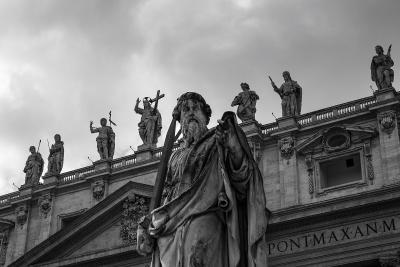

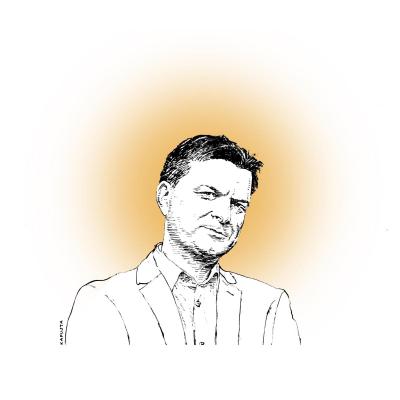
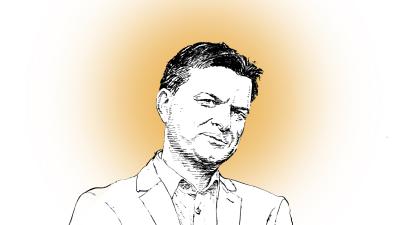

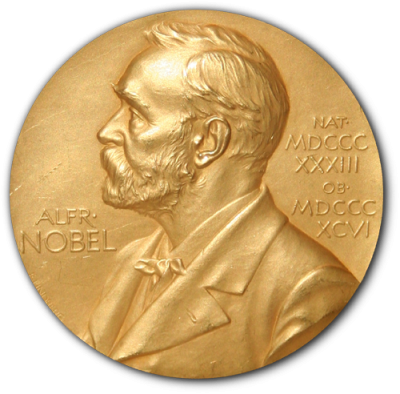

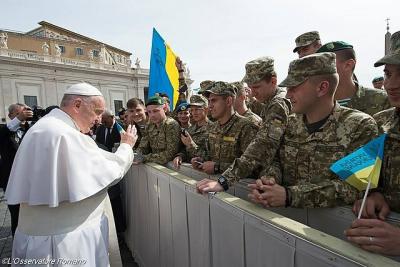

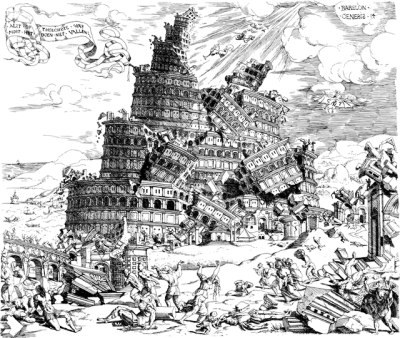

Comments (0)